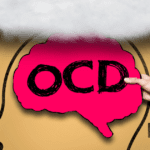
From Chaos to Control: How First City Mental Health Center Can Help Manage OCD Symptoms
February 8, 2024
The Importance of Self-Care: A Guide to Stress Management at First City Mental Health Center
February 8, 2024Navigating Life with an Alcoholic Loved One? Discover the Benefits of Al Anon
Welcome to a blog post that touches upon one of the most challenging journeys in life: navigating it with an alcoholic loved one. Dealing with addiction can be overwhelming and isolating, leaving us feeling lost amidst chaos. But fear not, for today we unveil the remarkable benefits of Al Anon - a worldwide support network that offers hope, guidance, and empowerment to those affected by someone else's alcoholism.
Introduction: Share a Personal Story or Statistics on the Impact of Alcoholism on Loved Ones
Alcoholism is a disease that affects not only the individual struggling with it, but also their loved ones. As someone who has personally experienced the devastating effects of alcoholism on my family, I can attest to the fact that it is a difficult journey for everyone involved.
My story begins with my older brother, who was always the life of the party and seemed to have everything under control. However, as he got older, his drinking habits became more frequent and excessive. At first, we brushed it off as him just having a good time and enjoying his youth. But as time went on, his behavior became more erratic and unpredictable.
I remember countless nights spent worrying about him when he didn't come home or receiving calls from hospitals because he had been in an accident while drunk. His alcoholism not only affected himself but also our family dynamic. We were constantly walking on eggshells around him, never knowing what mood he would be in or how he would react to things.
The emotional toll it took on my parents was especially heartbreaking to witness. They were torn between wanting to help my brother and feeling helpless in the face of his addiction. Our once close-knit family slowly drifted apart as we all struggled to cope with this disease.
But perhaps one of the most painful moments was when my brother missed our father's birthday dinner because he had passed out at a bar earlier in the day. It was then that I realized how much alcohol had taken over his life and how much it was hurting not just him but all those who loved him.
Unfortunately, my story is not unique nor is it uncommon. According to statistics from the National Survey on Drug Use and Health (NSDUH), 14 million adults aged 18 years and older have an alcohol use disorder in the United States alone. This means that millions of families are also affected by the destructive nature of alcoholism.
If you can relate to my story, then you know firsthand the pain and turmoil that comes with having an alcoholic loved one. But there is hope and support available through organizations like Al Anon. In the next section, we will explore the benefits of Al Anon in navigating life with an alcoholic family member or friend.
What is Al Anon?
Al Anon is a support group for friends and family members of individuals who struggle with alcoholism. It provides a safe and non-judgmental space for loved ones to share their experiences, strength, and hope while dealing with the impact of someone else's drinking.
Founded in 1951 by Lois W., the wife of Alcoholics Anonymous co-founder Bill W., Al Anon follows the same principles as AA but focuses on helping those affected by someone else's alcoholism rather than the individual struggling with addiction. The program is based on the Twelve Steps, which provide a path towards personal recovery and spiritual growth.
The primary purpose of Al Anon is to help loved ones find peace and serenity in their lives despite the chaos caused by alcoholism. The program emphasizes that individuals cannot control or cure an alcoholic, but they can learn how to take care of themselves better.
One significant aspect of Al Anon is its anonymity policy, where members are encouraged to keep confidential everything shared within meetings. This allows participants to feel safe and comfortable sharing their experiences without fear of judgment or repercussions outside of meetings.
Attending meetings is at the core of Al Anon's program. These gatherings are held worldwide in various formats such as face-to-face, online, or over the phone. In these meetings, members share their struggles, listen to others' stories, offer support and encouragement, and learn from each other's experiences.
In addition to regular meetings, Al Anon also provides literature such as books and pamphlets that explain the principles behind the program in more detail. These resources also offer practical tips on how to handle challenging situations when living with an alcoholic loved one.
Another essential aspect of Al Anon is sponsors – experienced members who guide newcomers through their journey towards healing and recovery. Sponsors offer one-on-one support outside meetings and serve as role models for living a fulfilling life despite having an alcoholic in the family.
Al Anon is a supportive community that offers hope and understanding to those affected by someone else's alcoholism. With its emphasis on personal growth, self-care, and spiritual principles, Al Anon provides tools for loved ones to navigate life with an alcoholic loved one and find serenity amidst chaos.
Brief history and background of the organization
Al-Anon is a global organization that provides support and guidance to individuals who have been affected by someone else's alcoholism. Founded in 1951, Al-Anon has grown to become a worldwide fellowship with over 24,000 groups in more than 115 countries.
The story of Al-Anon began with the formation of Alcoholics Anonymous (AA) in the late 1930s. AA was founded by Bill Wilson and Dr. Bob Smith, two men who struggled with alcohol addiction themselves. As they worked towards sobriety, they realized the importance of having a supportive community and sharing their experiences with others.
As AA grew in popularity, it became evident that there were many people who were deeply affected by someone else's drinking problem - family members, friends, and loved ones. In response to this need, Lois Wilson (wife of Bill Wilson) and Anne Smith (wife of Dr. Bob Smith) formed Al-Anon in 1951.
At first, Al-Anon meetings were held exclusively for the wives of AA members. However, as time went on, it became clear that anyone who has been affected by another person's drinking could benefit from the support provided by Al-Anon.
Since its inception, Al-Anon has helped millions of people around the world cope with the effects of living or caring for an alcoholic loved one. It offers a safe and non-judgmental environment where individuals can share their struggles and find comfort and strength through mutual understanding.
One significant event in Al-Anon's history was the publication of its first book titled "One Day at a Time." This book contains personal stories from individuals who have experienced life with an alcoholic loved one and how they found hope through attending Al-Anon meetings.
Over time, Al-Anon has continued to evolve and adapt to meet the changing needs of its members. The organization now offers various resources such as literature, online meetings, and a 24-hour helpline for those seeking support.
In addition to supporting individuals affected by alcoholism, Al-Anon also plays a crucial role in educating the public about the disease of alcoholism. Through its outreach efforts, Al-Anon aims to reduce the stigma associated with alcohol addiction and promote understanding and compassion towards those who are struggling.
Al-Anon has a rich history and has helped countless individuals navigate life with an alcoholic loved one. Its message of hope, strength, and recovery continues to spread worldwide, providing much-needed support for those who have been impacted by this devastating disease.
Mission and Purpose of Al Anon
Al Anon is a support group for those who have been affected by someone else's drinking. The mission of this organization is to provide help and hope to families and friends of alcoholics, regardless of whether the alcoholic is still drinking or not. The purpose of Al Anon is to offer a safe and confidential space for individuals to share their experiences, strengths, and hopes in dealing with the effects of a loved one's alcoholism.
The main objective of Al Anon is to aid its members in learning how to cope with the challenging situations that come with having an alcoholic loved one. This may include understanding the disease of alcoholism, setting boundaries, improving communication skills, managing emotions, and finding peace within oneself despite the chaos caused by an alcoholic family member or friend.
One key aspect of Al Anon's mission is its focus on personal growth and self-care. Members are encouraged to take care of themselves first and foremost before trying to help others. This means learning how to establish healthy boundaries, prioritize one’s own needs, and let go of the need for control over their loved one's behavior.
Another important aspect of Al Anon's mission is fostering empathy and understanding towards both the alcoholic individual and oneself. By sharing their stories with others who have gone through similar experiences, members gain insight into their own feelings as well as those of their loved ones struggling with alcoholism. This can lead to greater compassion, forgiveness, and healing for all parties involved.
In addition to providing emotional support, Al Anon also offers practical tools and resources for coping with daily challenges related to living with an alcoholic loved one. These may include setting realistic expectations, practicing detachment with love (letting go without abandoning), utilizing positive affirmations, seeking professional help when necessary, among others.
Overall, the mission of Al Anon is centered around creating a supportive community where individuals can find strength in unity while navigating the difficulties of living with an alcoholic loved one. By providing a space for healing, growth, and understanding, this organization aims to help its members find peace and serenity in the midst of chaos and uncertainty.
Who can benefit from Al Anon?
Al Anon is a support group that offers help and guidance to individuals who have been affected by someone else's alcoholism. This includes not just the alcoholic themselves, but also their family members, friends, and loved ones. Anyone who has been impacted by another person's drinking can benefit from Al Anon.
Firstly, family members of an alcoholic can greatly benefit from Al Anon. Living with an alcoholic can be extremely stressful and can disrupt the entire family dynamic. Family members may feel helpless, guilty, or resentful towards the alcoholic. They may also struggle with feelings of shame or embarrassment about their loved one's behavior. Al Anon provides a safe space for these family members to share their experiences and emotions without judgment. Through attending meetings and listening to others' stories, they can gain a better understanding of alcoholism as a disease and learn how to cope with the challenges it brings to their lives.
Similarly, friends of an alcoholic can find solace in Al Anon as well. Often, friends are the first ones to notice changes in behavior or patterns of drinking in someone they care about. They may feel obligated to intervene or try to fix the problem on their own but often end up feeling overwhelmed and burnt out. By attending Al Anon meetings, they can learn healthy boundaries and ways to support their friend without enabling them.
Alcoholism doesn't just affect those closest to the individual; it also impacts coworkers, acquaintances, and even strangers who may encounter someone under the influence of alcohol. These individuals may not necessarily have a personal relationship with an alcoholic but could still benefit from attending Al Anon meetings through gaining knowledge about addiction and its effects on society.
Anyone struggling with codependency issues due to being in a relationship with an alcoholic can find immense support in Al Anon. Codependency is when one becomes overly reliant on another person for validation or sense of self-worth while neglecting their own needs. In an alcoholic relationship, the codependent individual may enable the alcoholic's behavior and prioritize their well-being over their own. Al Anon offers a path to recovery from codependency by encouraging self-care and setting healthy boundaries.
Whether you are a family member, friend, coworker or have struggled with codependency due to someone else's alcoholism, Al Anon can provide invaluable support and guidance on your journey. The group is open to anyone who has been affected by someone else's drinking and offers a sense of community and understanding that can be difficult to find elsewhere. By attending meetings regularly and working through the program's steps, individuals can find healing, hope, and peace in navigating life with an alcoholic loved one.
- Family members, friends, and coworkers affected by someone else's drinking
Dealing with an alcoholic loved one can be a difficult and emotionally taxing experience, not just for the individual struggling with alcoholism but also for their family members, friends, and coworkers. The impact of someone else's drinking does not only affect the person directly involved in the situation but also those who care about them.
Family members often bear the brunt of the consequences of an alcoholic loved one's actions. They may have to constantly deal with arguments, financial troubles, and broken promises. Watching a family member spiral into alcoholism can be heartbreaking and overwhelming. It is common for family members to feel helpless, angry, guilty, or even ashamed of their loved one's behavior.
Friends are also greatly affected by someone else's drinking habits. They may feel like they are losing a friend as they witness their loved one's personality change due to alcohol consumption. Friends may struggle to maintain a sense of normalcy in the relationship as they try to support their friend while also setting boundaries to protect themselves from any negative effects.
Coworkers can also be impacted by someone else's drinking habits. When an employee struggles with alcoholism, it can lead to absenteeism from work or decreased productivity due to physical or mental health issues related to alcohol use. This can create added stress and workload for other colleagues who may have to cover for the individual struggling with alcoholism.
The emotional toll on all these individuals should not be underestimated. It is common for them to experience feelings of anger, frustration, resentment, guilt, sadness, and confusion when dealing with an alcoholic loved one. These emotions can cause strain in relationships and affect overall well-being.
Fortunately, Al Anon provides support for family members, friends and coworkers affected by someone else's drinking habits through its 12-step program designed specifically for those dealing with a loved one’s addiction issues. By attending Al Anon meetings regularly and working through each step at your own pace while being supported by a community of people who understand what you are going through, you can learn to cope with the challenges that come with having an alcoholic loved one.
In Al Anon meetings, individuals affected by someone else's alcoholism can find comfort in sharing their experiences and feelings with others who have gone through similar situations. They gain valuable insights on how to set boundaries, practice self-care, and detach from the alcoholic's behavior while still showing love and support.
It is crucial to acknowledge the impact of someone else's drinking habits on family members, friends, and coworkers. By seeking support from Al Anon, those affected can find healing and strength to navigate life with an alcoholic loved one. Remember that you do not have to go through this alone – there is always a supportive community ready to help at Al Anon.
- Common struggles faced by those with an alcoholic loved one
Living with an alcoholic loved one can be a challenging and emotionally draining experience. It not only affects the individual struggling with alcoholism, but it also has a significant impact on their family members and loved ones. While every situation is unique, there are some common struggles that many people face when dealing with an alcoholic loved one.
One of the most prominent challenges is the constant worry and fear for the well-being of their loved one. Alcoholism is a progressive disease that can have severe physical, mental, and emotional consequences. As a result, family members often find themselves constantly worrying about their loved one's health and safety. This fear can be overwhelming and take a toll on their own mental health.
Another struggle faced by those with an alcoholic loved one is the feeling of helplessness and frustration. Despite wanting to help their loved one overcome their addiction, they may feel powerless as they watch them spiral deeper into alcoholism. This sense of helplessness can lead to feelings of guilt, anger, or resentment towards the person struggling with alcoholism.
The unpredictable behavior of an alcoholic can also cause strain in relationships with family members. Many times, alcoholics may become verbally or physically abusive towards those closest to them while under the influence. This type of behavior can be traumatic for family members and leave deep emotional scars.
Financial struggles are also common among families dealing with an alcoholic loved one. Alcoholism often leads to job loss or difficulty maintaining employment due to its effects on physical and mental health. This financial burden falls on family members who may need to take on additional responsibilities or support their loved ones financially.
Living with someone who has an addiction takes a toll on everyone's emotional well-being in the household. Family members may experience feelings of shame, embarrassment, or isolation due to society's stigma surrounding alcoholism. They may also have trouble coping with their emotions as they navigate through this difficult journey alongside their loved ones.
These are just a few of the common struggles faced by those with an alcoholic loved one. It is crucial to acknowledge that these challenges can be overwhelming and take a significant toll on an individual's mental health. Seeking support from groups like Al-Anon can provide much-needed guidance, understanding, and empathy for family members of alcoholics.
How does Al Anon work?
Al Anon is a support group for people whose lives have been affected by someone else's drinking. It provides a safe and confidential space for individuals to share their experiences, strengths, and hope with others who understand the challenges of living with an alcoholic loved one. But how exactly does Al Anon work?
First and foremost, Al Anon operates on the principle of anonymity. This means that everything shared in meetings is kept confidential, allowing members to feel comfortable opening up and sharing their personal struggles without fear of judgment or repercussions. This emphasis on anonymity also extends to protecting the identity of those attending meetings.
Al Anon follows a 12-step program similar to that of Alcoholics Anonymous (AA). Through these steps, members are encouraged to examine their own behaviors and attitudes towards their loved ones' alcoholism. They learn how to take responsibility for their own happiness and well-being rather than trying to control or fix the alcoholic in their life.
One key aspect of Al Anon is the concept of detachment. Detachment allows family members and friends of alcoholics to let go of trying to change or rescue their loved ones from alcoholism. It involves setting healthy boundaries and recognizing that they cannot control another person's choices or actions.
Another important element of Al Anon is its focus on self-care. Many people who love someone struggling with addiction often neglect themselves in the process. Al Anon encourages its members to prioritize their own physical, emotional, and spiritual well-being by practicing self-care activities such as exercise, meditation, hobbies, or seeking therapy.
In addition to regular meetings where members can share their experiences and offer support to one another, Al Anon also offers literature such as books and pamphlets that provide guidance on navigating life with an alcoholic loved one. These resources offer practical tips for dealing with challenging situations while also promoting self-care practices.
Moreover, Al Anon has a sponsor system where individuals can connect with more experienced members who have worked through the 12 steps and offer guidance and support. This system provides a sense of accountability and helps members feel less alone in their journey.
Al Anon also offers opportunities for personal growth through service work. Members can volunteer to help organize meetings or events, share their experiences by speaking at meetings, or even take on leadership roles within the group. This involvement helps individuals develop a sense of purpose and belonging while also contributing to the greater Al Anon community.
Al Anon works by providing a supportive environment that promotes self-reflection, detachment, self-care, and personal growth. By following its 12-step program and utilizing resources such as literature, sponsors, and service work, members of Al Anon can find healing and hope as they navigate life with an alcoholic loved one.
Meetings and support groups
Meetings and support groups are vital resources for individuals who have a loved one struggling with alcoholism. These gatherings provide a safe and supportive environment for people to share their experiences, learn coping strategies, and find comfort in knowing they are not alone.
One of the main benefits of attending meetings is the opportunity to connect with others who understand what you are going through. It can be isolating and emotionally draining to constantly deal with the challenges of living with an alcoholic loved one. In Al Anon meetings, you will meet people who have similar experiences and can offer empathy, understanding, and support. This sense of community can be incredibly healing and empowering.
In addition to finding emotional support, meetings also provide valuable education on addiction and how it affects families. By attending Al Anon meetings regularly, you will gain a better understanding of alcoholism as a disease rather than a moral failing or lack of willpower. This knowledge can help dispel any feelings of guilt or shame that may arise from living with an alcoholic loved one.
Support groups also offer practical tools for navigating life with an alcoholic family member. Through sharing their own experiences, members may offer helpful tips on setting boundaries, communicating effectively, managing expectations, and taking care of oneself while supporting someone else's recovery journey. These strategies can ultimately lead to healthier relationships within families affected by alcoholism.
Moreover, attending meetings can serve as motivation for personal growth and self-care. Seeing others working towards their own well-being despite challenging circumstances can inspire individuals to do the same for themselves. Meetings often include readings from Al Anon literature that encourage self-reflection and promote positive changes in thinking patterns and behaviors.
Aside from regular group meetings, Al Anon also offers specialized support groups such as Adult Children of Alcoholics (ACA) or Parents Anonymous (PA). These groups cater specifically to those who grew up in homes where alcohol abuse was present or parents struggling with alcoholism respectively.
In addition to in-person meetings, Al Anon also offers virtual and phone meetings for those who may not be able to attend in person. These options make it easier for individuals to access support and connect with others even if they have a busy schedule or are unable to leave their home.
Attending Al Anon meetings and support groups can provide immense benefits for individuals dealing with an alcoholic loved one. From finding a sense of community and understanding to gaining practical tools for coping, these gatherings offer valuable resources that can greatly aid in navigating life with an alcoholic family member.






